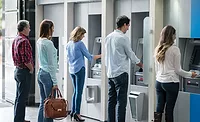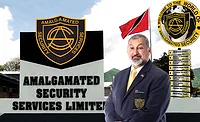Outside the Comfort Zone
Get to know Dennis Treece, Director of Corporate Security for the Massachusetts Port Authority. Whom in his organization does he take the time to interact with, and why?

|
How did your career in security begin? Why did you decide upon this profession?
It’s a question that I ask people who I mentor. In my case, the Army decided it for me. When I entered the Army at the end of Vietnam War, I moved from infantry to intelligence, and much of my duties involved security. During my 30 year career in the Army, I had many opportunities to get involved in security. During my last assignment, I was the IT security official for all U.S. army Internet connected networks in Europe. So I became one of those rare people with experience in both Physical and IT security. After the Army I worked in Atlanta for a company that managed firewalls and watched cyber attacks in real time against banks and insurance companies. Then after 9/11 I got a phone call from Massport, and I’ve been here ever since. Fundamentally, though, security principles are the same, regardless where you apply them.
With your background, do you tend to gravitate towards IT security?
Well, most of what I deal with is physical, but there are plenty of issues with IT security too. Fortunately our small privately addressed networks are very well protected, so I don’t need to spend a lot of time on cyber.
What will be your greatest challenge this year in your role?
The biggest challenge is keeping people motivated. It’s been 10 years since 9/11, and it’s always a challenge to make people stay aware and stay focused. It’s a leadership issue. We work on that here by mandatory training and with a daily operations and security meeting to discuss the security issues for the day. Security functions within the context of airport and seaport operations in this organization, so it’s an opportunity each morning to tie operations and security together. And every six months we reward people who have stepped outside of their comfort zone and brought something to the attention of law enforcement. There’s plenty of negative reinforcement out there, but it’s always nice to recognize those who go the extra mile. Hopefully, we won’t have another motivation like 9/11.
Whom in your organization do you take the time to interact with, and why?
I spent most of my time talking to the CEO and senior staff, because I’m the policy guy and the risk manager, so my focus at my level is with the senior team. We serve the public so I also work with a long list of corporate security leaders whose firms use our facilities. I also don’t like reinventing wheels, so I work with security chiefs around the country. Although most airports are different, often what works here in some ways will be applicable. We also have an active security test bed, and we’ve looked at more than 100 technologies since 9/11. I work closely with the intellectual community here and with high-tech research efforts in the Boston area.
What qualities do you have that you believe make you a leader?
I guess it helps that I was a leader in the Army for 30 years and that I teach part time about leadership at Northeastern University. I think that I’m decisive, I have a lot of experience and I really care about my decisions balancing the business needs here with our security needs. We are in the transportation business with security issues, not the other way around. This makes me mindful of our passengers and shippers: they expect our terminals to be safe and secure when they are here. I often remark that the best thing I can do for our passengers is that they don’t even remember our facility. After all, we aren’t their destination; we are just a speed bump on their way to visit grandma. I think a good security program should be quietly but effectively running in the background and not getting too much in their way. I’m not a micro manager; I give broad guidance and direction, but I’m focused on making sure people have the ability and the confidence to make their own decisions.
What keeps you up at night?
There is always the nagging thought that maybe we haven’t done everything that we can do to mitigate security events that can adversely impact our business, customers and our employees. I ask myself: are our emergency responders well equipped, do I have surveillance cameras in the right places, are our IT networks adequately protected, do we all know who to call in an emergency, are the emergency plans up to date, have we done everything we possibly could have done?
What do you like to do in your free time?
Who said I had any free time? I live in a large 120-year-old Victorian, so home maintenance is always on my agenda. I also have a formal garden; I like to play golf and to travel.
Looking for a reprint of this article?
From high-res PDFs to custom plaques, order your copy today!







